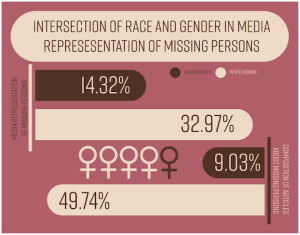Finals Stress Overwhelms Students
January 10, 2019
High School students around the nation, especially at Eaglecrest, know the familiar feeling of stress creeping up during the last few weeks of the semester. Homework begins to pile up, studying often consumes evenings, and sleep begins to fall down the list of priorities. These unhealthy but forced conditions and the overload on students certainly doesn’t help most perform well on their exams, leading to teachers and parents to wonder why some begin to break down in response to sheer overwhelmment.
It’s not a hard question to answer, and there’s simple explanation: students are being strained to their breaking points usually by outside sources and factors outside of their control, and it’s not justified.
A few teachers start to cram material into the final weeks of the semester in attempt to cover all of the course requirements. Yes, teaching students all of the material is completely necessary, as students need to know the course information for finals and potential AP exams in the spring, but increasing the workload significantly near finals seems to unsuccessfully present the content in a way that creates anxiety and a burden on the student to learn material with minimal attention and assistance.
Forcing students to learn a greater load of material in a short amount of time creates gaps in learning: one can’t effectively learn weeks of material in just a few class periods. According to Grade Power Learning, “cramming is one of the least effective ways to learn a subject. Research has found that many students cannot recall much information after a cram session.” The major reason cramming isn’t effective, both cramming forced by teachers and cramming as a result of procrastination, is because it “dramatically increases a student’s stress levels. This stress has a negative effect on their ability to concentrate, making preparing for a test even more difficult,” claims Grade Power Learning. Certainly, students play a role in the stress level they experience during finals, as procrastination and staying up late are factors that many of us control, but the outside sources that encourage cramming are hard to manage.
Although we have designated school days solely for finals, a handful of teachers (especially those teaching AP courses) give final exams early in multiple parts, usually because a whole AP test can’t be taken in one ninety-minute block. Frontloading finals, although sometimes understandable because of circumstances, only overwhelms the student more, as, once again, they must learn and study more material in a shorter amount of time. Also, because a semester final is not an AP exam, ninety minutes is sufficient to test the essential material presented in the months prior; anything that can’t be tested on in a class period is usually repeated and unnecessary content.
Stress is expected during final exams, and the absence of it would be uncommon and alarming for some students. Feeling stress motivates many to work harder and perform to the best of their ability, but the consequences of feeling swamped with schoolwork can be serious. Instead of feeling driven to complete tasks, some shut down. “Suicide rates among children and young adults peak at the beginning of exam season…[and] pressure to get good results is harming their mental health,” according to an article written by Denis Campbell of The Guardian. Of course, a student who takes their own life is often driven by other factors, but academic pressure is a common tipping point. Mental health should be regarded as more important than final exams and semester grades. The reality is that mental health issues often last longer than finals season, which usually reaches its peak in a couple of weeks, while mental ailments create problems that can affect a person’s life for years on end. A grade in a class, although it seems like the number one priority at the time, doesn’t compare to the state of one’s mental and emotional health. Unfortunately, for society and education systems in general, mental health is often forgotten about during finals week by some students and teachers alike (there are many teachers at Eaglecrest that prioritize the mental health of students, and this new wave of empathy and understanding is extremely impactful on students).
The amount of stress placed on students during exams is needless. Material can be better learned and a student’s ability to develop a passion for the subject if stress levels are low. Personability is a key component that should be incorporated into the process of preparing for finals.

Study Hard: Student Ivonne Vazquez working hard on her studies and getting ready for finals.
As to what you can do to relieve the inevitable end-of-semester stress? Times Higher Education recommends “[taking] regular breaks, [scheduling] fun things to do, [exercising] and [getting] outdoors,” and most importantly, “[speaking] to someone you trust” in order to receive guidance and assistance, both mentally and academically, if needed. It’s important to remember to balance how much time you spend on things, as eating, sleeping, and taking mental breaks are just as crucial as studying. It’s important to do your best, but final exams do not determine your personal worth. A lifetime of achieving personal goals and happiness take precedence over the result of an exam.







